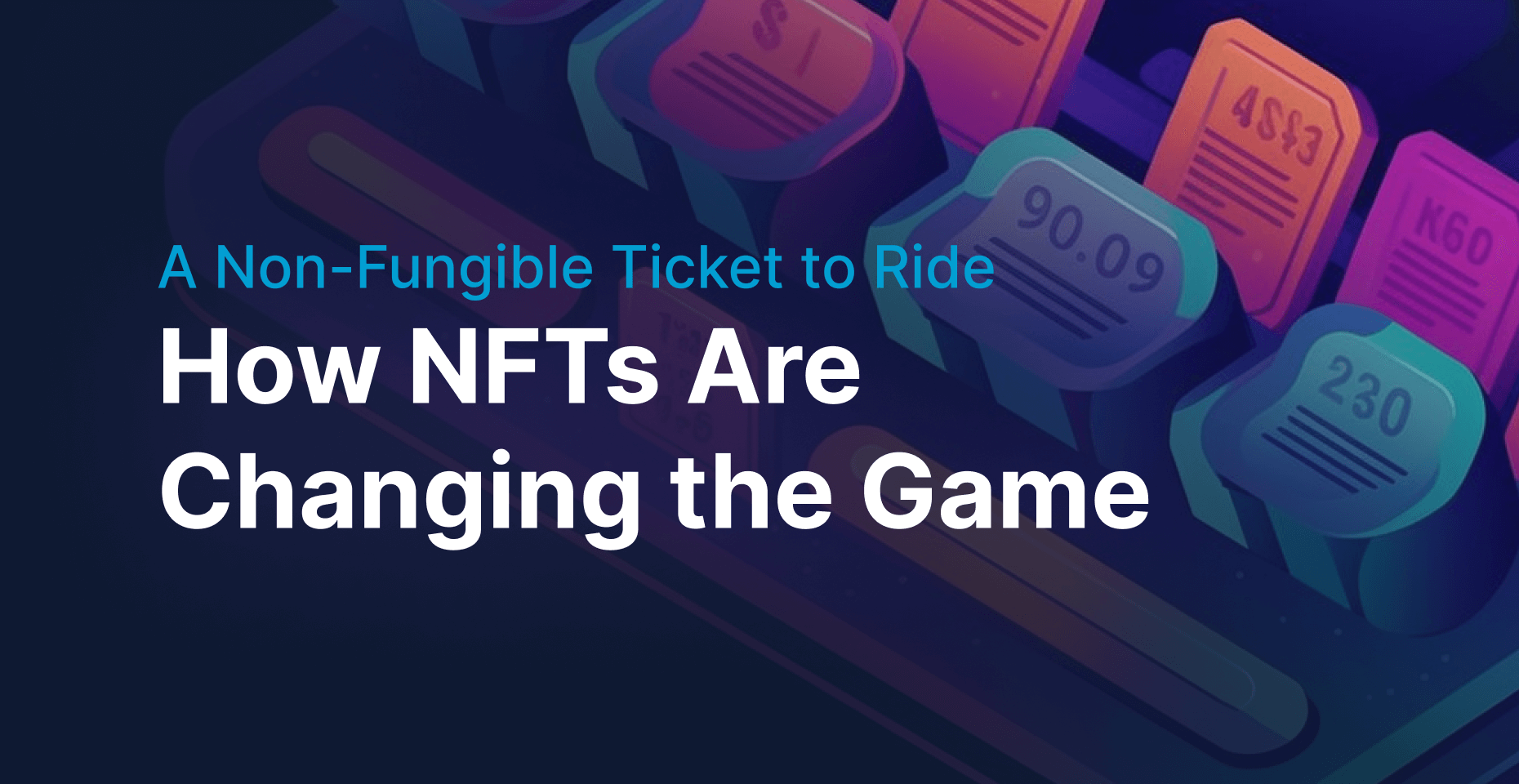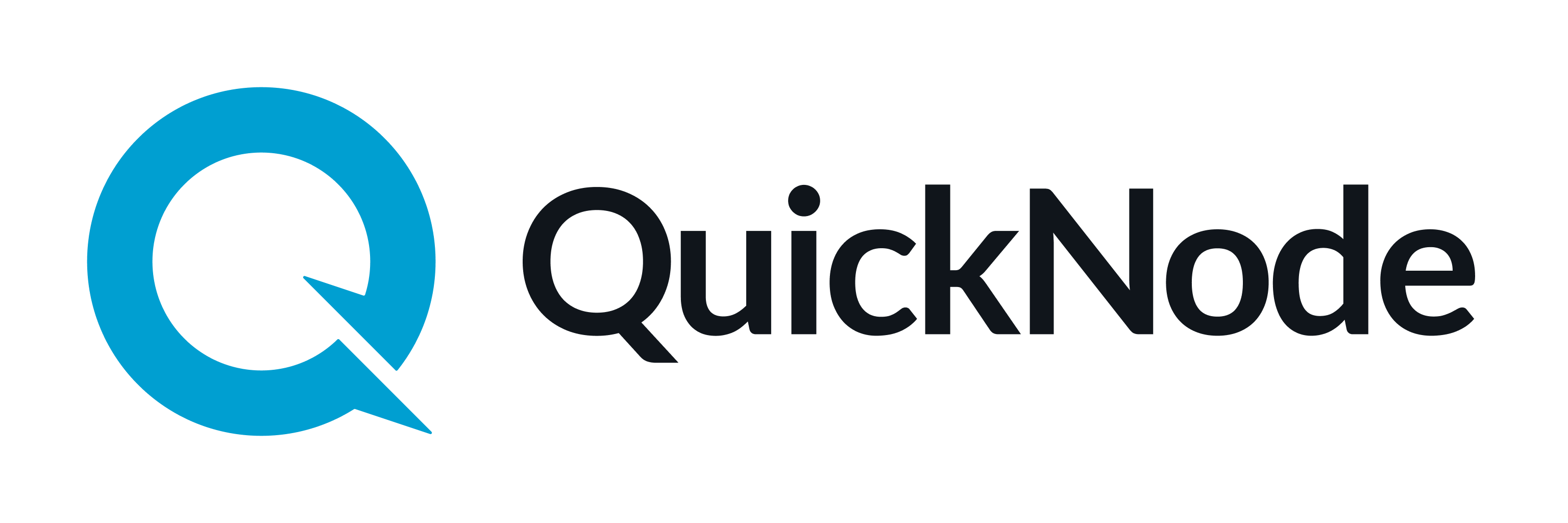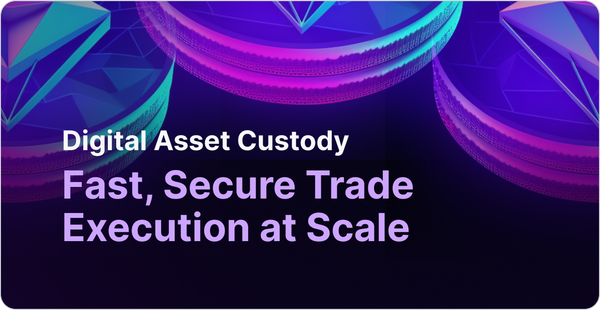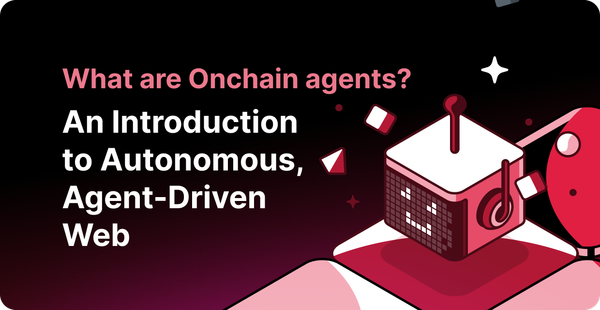A Non-Fungible Ticket to Ride: How NFTs Are Changing the Game
NFTs & blockchain are revolutionizing event ticketing, solving key issues, and offering unique fan benefits.

For the last decade, buying concert tickets hasn’t changed much.
You hop onto a ticketing site, buy the tickets, and get emailed a PDF or add them to your ticketing app. You know the drill...
What’s wrong with buying concert tickets right now? Well besides thousands of swifties freaking out about not being able to buy their Taylor Swift tickets, there are quite a few issues: scalping, fraudulent tickets, bots, and inefficient ticket transfers being the main ones.
NFTs have the potential to upgrade ticketing to the next level: introducing Ticketing in web3 (Ticketing3.0). In the world of Ticketing3.0, boring PDF tickets are replaced with tickets as NFTs. By using NFTs as tickets, there’s a myriad of ways both recipients and issuers can benefit.
Anyone Want to Buy Concert Tokens?
The point of NFT concert tickets is much more than just buying and selling NFTs. It all comes down to the interoperability of blockchain platforms.
Last week, I spent 30 minutes trying to get my Jerry Seinfeld tickets open from Stubhub onto Ticketmaster. I had to reset my password twice, got multiple API errors, and screamed a couple expletives in the process.
On an interoperable open platform where all you need to do is sign in with Ethereum, this headache of a process won’t be a problem anymore. All the databases will be talking to each other already. Furthermore, the NFTs can be an invisible layer of technology like Reddit’s NFTs. Platforms can open up crypto wallets for fans without them needing to remember seed phrases or anything crazy. As Matt Smolin, CEO of web3 loyalty platform Hang, Tweeted “How to build in web 2.5: Follow the IFYKYK rule. Build so the general market customer doesn't realize it's there beyond the benefits, but the crypto-natives see it loud and clear.”
With the interoperability of the blockchain, your imagination is the limit. Let me give you a few examples of how NFTs can be used for tickets.
Token-Gated Ticketing Sites
Imagine if Taylor Swift wanted to give preference to her previous concert-goers, the most hardcore of the Swifties.
If all of her concert tickets were NFTs, she could then token-gate the ticketing system to provide tiered access depending on how many prior concerts you went to. This would be a great way to reward fans and for ticket issuers to avoid lawsuits from angry diehard fans.
Let’s say that Phoebe Bridgers was opening up for Taylor Swift. The ticketing platform could even token-gate their platform so that Phoebe Bridgers’ previous concert-goers got discounts or special access to tickets in Phoebe’s hometown.
Token-Gated Artist/Merchandise Sites
Imagine Tyler, the Creator sold tickets to his tour as NFTs.
He could then token-gate the website for his fashion brand Golf Wang so that only holders of the NFT could access specific pieces of apparel. From there, he could even segment tickets down into cities and token-gate city-specific apparel. Imagine a basketball jersey with LA Lakers colors and Golf Wang on it for all his LA concert-goers.
Now let’s say another rapper like Kid Cudi was selling his concert tickets as NFTs. Rappers love to collab. It’s one of the best ways to grow your audience. So let’s say Tyler and Cudi wanted to collaboratively grow their fanbases, they could offer discounts to merchandise for NFT-holders of each other’s tickets.
Because this would all be taking place on the artist’s own site, they could do more than just token-gated merchandise sales. They can offer exclusive content, behind-the-scenes footage, access to token-gated livestreams, and more.
Improved Customer Data
Ok, answer me this. As a business-owner, imagine you had a list of your customer’s favorite clubs, previous concerts, and even how much they’ve YOLOed on ETH.
That’d be insane. Talk about individualized marketing.
Let’s say Big Sean’s team sold 10,000 tickets to his show in Detroit. They see 3,000 people also previously bought Wiz Khalifa tickets. Sean’s team now knows that his customers go to Wiz shows. So who does Sean bring out at the next show? Wiz Khalifa of course.
You can go even further than that. Let’s say out of those 10,000 ticket-holders, 500 have spent more than $100,000 of ETH on-chain. When Big Sean is ready to offer upgraded VIP access to shows, who do you think would be the best 500 people to hit up? Obviously the whales. You can’t see that kinda data in web2.
The Future of Ticketing with Web3
Remember that idea of a token-gated ticketing system for Taylor Swift tickets?
In March 2023, Ticketmaster launched the ability to offer token-gated ticket sales. And according to insights from Yale University, Ticketmaster controls more than 70% of the market for ticketing and live events (and more than 80% for live concerts). This means the market leader for ticketing systems just took the crypto-pill. LFG!
The first band to launch a token-gated ticket sale was Avenged Sevenfold, offering their Deathbat NFT-holders first access to tickets in NYC and LA. Ticketmaster’s token-gated sales are currently only compatible with tokens minted on Ethereum and stored in dApp wallets like MetaMask and Coinbase.
“This new capability allows artists to get special access and rewards to specific fans they want to super serve,” said David Marcus, EVP of Global Music, Ticketmaster. “Artists like Avenged Sevenfold are using Web3 and NFTs to build deeper relationships with their fans, and we’re proud to help foster that connection through live events.”
Blockchain Infra Meets Ticketing3.0
As the future of ticketing evolves towards decentralized and secure solutions, blockchain infrastructure solutions like QuickNode can provide invaluable support. By delivering high-performance, scalable, and secure blockchain access, QuickNode can empower a ticketing decentralized app (dApp) to issue, transfer, and validate tickets swiftly and securely. With QuickNode handling the complex tasks of blockchain infrastructure management, the dApp can focus on improving its services and user experience. Additionally, QuickNode's data analytics and QuickAlerts notifications can offer insights into user behavior and prompt updates on ticket availability, creating a seamless, reliable, and transparent ticketing experience that could revolutionize the industry.

About QuickNode
QuickNode is building infrastructure to support the future of Web3. Since 2017, we've worked with hundreds of developers and companies, helping scale dApps and providing high-performance access to 22 blockchains. Subscribe to our newsletter for more content like this, and stay in the loop with what's happening in Web3!





